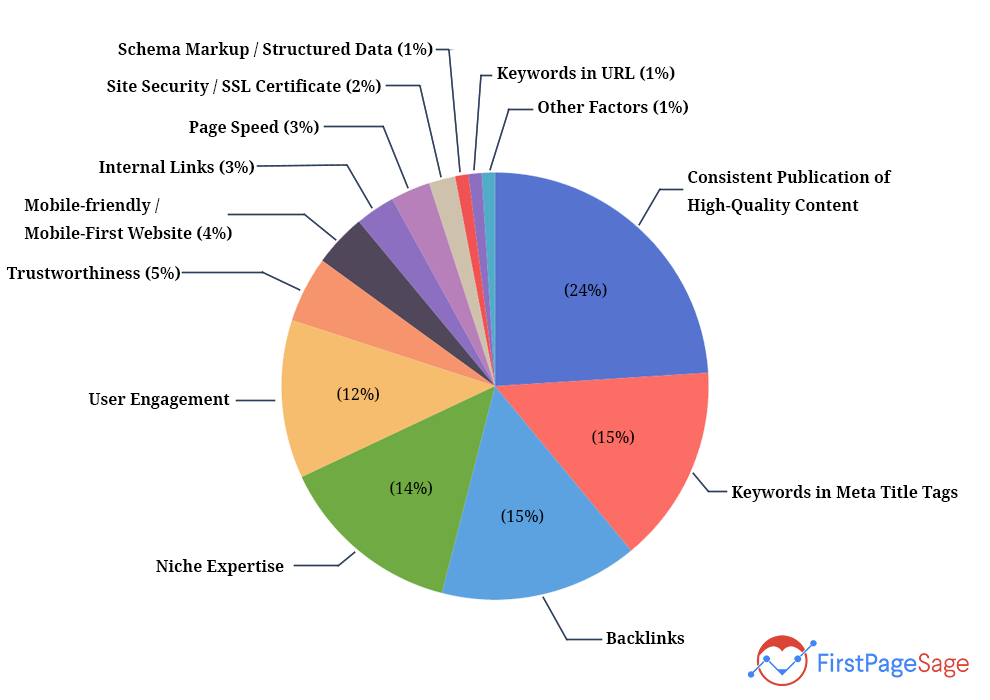Search Engine Optimization (SEO) is an ever-evolving field that helps businesses increase their online visibility and rank higher in search engine results pages (SERPs). With Google being the most popular search engine, it's crucial for businesses to understand the biggest SEO ranking factors for Google in 2023 and why they matter.
Below is a graph that breaks down the biggest SEO ranking factors for Google based on data from First Page Sage on The 2023 Google Algorithm Ranking Factors:
In this article, we'll explore the top 5 SEO ranking factors for Google and why they're important for your website's search engine performance.
1) Content Quality and Relevance Content is king
Google has been emphasizing quality content for years. The quality and relevance of your website's content are critical factors in determining your website's ranking. Your website's content should be original, informative, and engaging. It should also provide value to your target audience, answering their questions and addressing their pain points.
To ensure your content is high-quality and relevant, you should conduct thorough keyword research and use relevant keywords throughout your content. Additionally, your content should be optimized for readability and include multimedia elements such as images and videos to improve engagement.
2) Backlinks are still a crucial factor in Google's ranking algorithm
Backlinks are links from other websites that point to your website. They're like votes of confidence from other websites, indicating that your website is trustworthy and relevant.
However, not all backlinks are created equal. Google places more value on high-quality backlinks from authoritative websites. Therefore, it's essential to focus on building high-quality backlinks from reputable sources within your industry.
3) User Experience (UX)
Google's ultimate goal is to provide the best possible user experience to its users. Therefore, websites that provide a positive user experience tend to rank higher in SERPs.
Factors that contribute to a positive user experience include website speed, mobile-friendliness, ease of navigation, and accessibility. Your website should load quickly, be easy to navigate, and provide a seamless experience across all devices.
4) On-Page Optimization
On-page SEO optimization refers to the process of optimizing individual web pages to rank higher and earn more relevant traffic. It includes factors such as title tags, meta descriptions, header tags, and keyword usage.
Title tags and meta descriptions should accurately reflect the content on the page and include relevant keywords. Header tags help organize the content on the page and make it easier for users to read. Finally, keyword usage should be strategic and natural, avoiding keyword stuffing, which can harm your website's ranking.
5) Security Website
Security has become increasingly important in recent years, and Google has taken notice. Websites that use HTTPS, which encrypts data transmitted between the website and the user, tend to rank higher in SERPs.
To ensure your website is secure, you should install an SSL certificate, which will convert your website from HTTP to HTTPS. This will not only improve your website's security but also boost your website's search engine performance.
Conclusion
In conclusion, understanding the biggest SEO ranking factors for Google in 2023 is crucial for any business looking to improve its online visibility and rank higher in SERPs. By focusing on high-quality and relevant content, building high-quality backlinks, providing a positive user experience, optimizing your web pages, and ensuring your website is secure, you can improve your website's search engine performance and drive more relevant traffic to your site.







